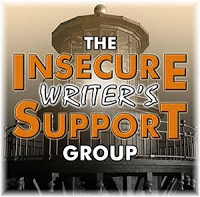Yes, even in
memoir, the protagonist needs to be flawed. Flawed in her understanding, her
logic, and her actions. Other characters may be flawed as well. This can be
difficult for writers. In memoir, you are writing about yourself. And it needs
to be true!
Okay, you may say. But which flaws
do I include? How do I know which events to put into the memoir story and which
ones to leave out?
We choose the flaw/s and events to include that pertain to the point we
are trying to make with the memoir story as a whole.
This is why you need to know the
overall point of the memoir. What are you trying to show or prove? Which
insight do you wish to share with the reader? It is very important that you
know where you’re going in your memoir story. Knowing the point of your story will
save you from writing pages and pages that go nowhere. By knowing the overall
point, you also know whether you’ve made it or proved it through your writing,
and—most importantly—you know where to end the memoir story.
This is true whether you are
writing fiction or essays or memoir.
But trying to find the point to
convey through your memoir can be difficult to discover. It can take memoirists
and writers a long time to find. At least it did with me because I overthink
everything—one of my many flaws! And I’m still not sure if I have it right.
When you start out, in fiction or
memoir, your point may be vague; like, forgiveness takes time or love conquers
all. The point of my memoir about attending college as a mother of five is “to seize
opportunity so as not to be left with regret.” I’d been instructing my children
to do this ever since they were born. But maybe the point needed to be a bit
more specific to my story. I came up
with: “Don’t let fear and doubt stop you from taking a chance at seizing your
dream.” Still kind of heavy.
The flaw I’m tracking and dramatizing
with this memoir is my inner struggle with inferiority, that I was not good
enough to attend college. I need to show this through concrete events in my
life. Much of this is through backstory, beginning with the origin scene. We’ll
address that in another post.
Writers need to consider their readers. In
considering the readers of my college memoir, I believe feelings of inferiority
are universal. But is it deep enough or specific enough for my memoir story
purposes? I need to ponder this. Your thoughts on this would be beneficial to
my memoir progress.
As for seizing opportunity and
having a second chance at my dream of a college degree, I learned about
community college from another parent who was attending part time. This seems
ridiculous now in the age of the ubiquitous internet, but back in 1998, when I was
knee deep in kids—five, remember, the oldest with social and learning
difficulties—this was new information to me. When I attended high school, going
to college meant going away to study, fulltime.
In the story present—the time
when the memoir story opens—I thought college had passed me by. I had no time
for it now. Then the Ivy League showed
itself on the horizon in scholarship form because of awards earned at the
community college level. And Inferiority moved into my home to live with
me—permanently—taunting me daily: The Ivy League? You? A mother? Are you crazy?
You got lucky in community college.
Memoirists and writers may start
with a general point to their story and then make it specific to the protagonist.
Why her? Why now? Why does it matter to her?
This is where specific backstory
comes into play. Through backstory, we find the why of the present story you
are telling. We’ll address this next month. Please feel free to ask me anything
about memoir and I will explain what I know through my blog posts.
Thank you for visiting Adventures
in Writing. Please follow my blog if you haven’t already and connect with me
online. I’ll be sure to do the same for you. To continue hopping through more
amazing blogs or to join our Author Toolbox blog hop, click here.

